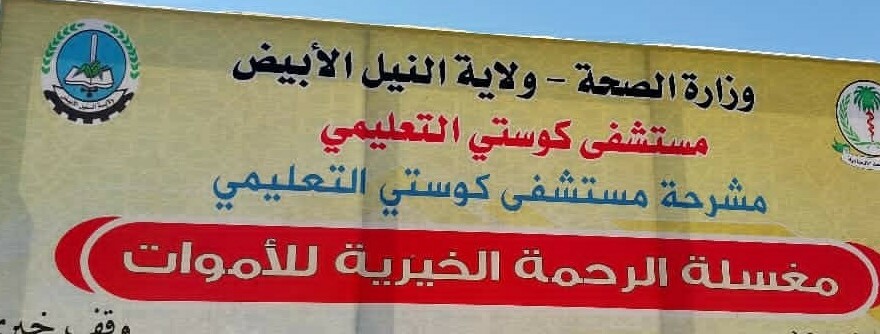Displaced people in Sudan’s White Nile State are struggling with severe shortages in free healthcare services, especially for surgical procedures, including pregnant women. This lack of access to essential medical care puts lives at risk, particularly when families cannot afford the necessary financial resources for proper treatment.
Speaking to Radio Tamazuj on Thursday, several patients among the displaced population appealed to authorities for assistance to save lives.
Maha Yahya Al-Siddiq, a displaced woman from Omdurman living in Kosti with her disabled husband and eight children, is currently eight months pregnant. She expressed her challenges to Radio Tamazuj, saying, “I haven’t received enough support for medical tests, except from my neighbours and some charitable individuals. I used to work in households to provide for my family, but my pregnancy complications have made it impossible for me to work.”
Doctors have advised her to undergo a surgical delivery, which costs 150,000 Sudanese pounds, in addition to postoperative treatments and the necessary post-delivery care items.
Al-Siddiq explained that she is currently living under a tree in a courtyard provided by a benefactor. Her only wish is to find a baby crib in the courtyard to deliver her baby and to find someone to assist her with the delivery needs.
Imad Ahmed Musa, a member of the White Nile State Emergency Chamber, stated, “Surgical procedures in government hospitals range from 300,000 to 600,000 Sudanese pounds, and from 700,000 to 1 million pounds in private hospitals.”
He emphasized the lack of intervention by voluntary organizations in childbirth or internal surgery operations in the state, noting that organizations do not treat cases requiring surgical procedures. Imad added, “The Zakat Chamber grants some individuals 150,000 pounds, but it is not obligated to provide this amount to all patients.”
Furthermore, he stated, “The Women and Obstetrics Hospital has initiated free caesarean and natural surgeries within the hospital, with 54 cases already receiving free care.” He highlighted that if the hospital continues to perform free surgeries without support from the Ministry of Health, it may face financial collapse and be forced to cease operations.
Imad emphasized that the absence of official authorities and organizations to support surgical procedures necessitates intervention from those interested in health work.
Fatima Abdullah, a displaced woman from Khartoum now residing at the Al-Thawra Sheltering House in Kosti, revealed that she and her twin daughters urgently require surgical intervention due to disabilities.
In her statement, she explained, “My daughters and I suffer from thyroid and hernia conditions, and doctors have advised us to undergo surgical procedures. However, the cost of one operation for each of my daughters is 380,000 pounds, a sum I cannot afford, especially since I have been separated from my husband for two years.”
Abdullah appealed to the relevant authorities at the center for assistance in arranging her daughters’ surgeries and providing her with thyroid medication. Unfortunately, she hasn’t found anyone to assist her in achieving this.
The economic challenges faced by displaced individuals necessitate immediate intervention by humanitarian organizations to provide healthcare, particularly for pregnant and nursing women, ensuring their safety and that of their children.




